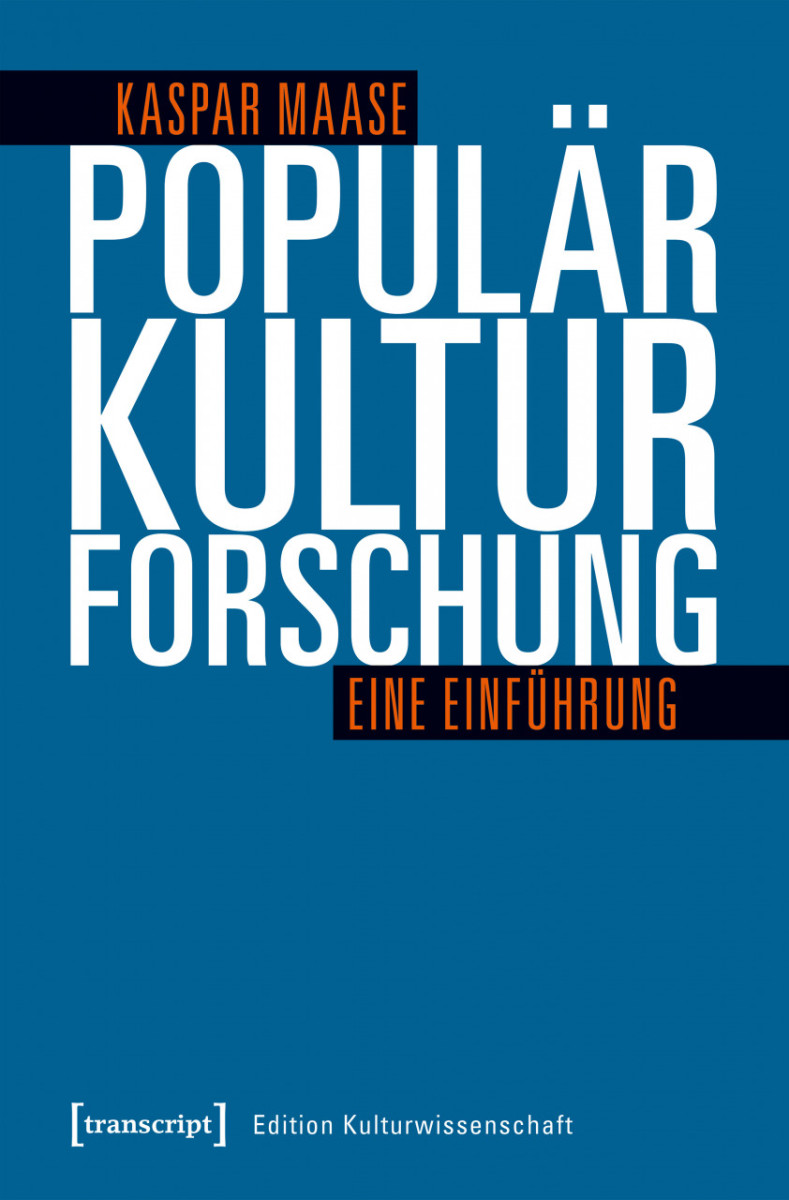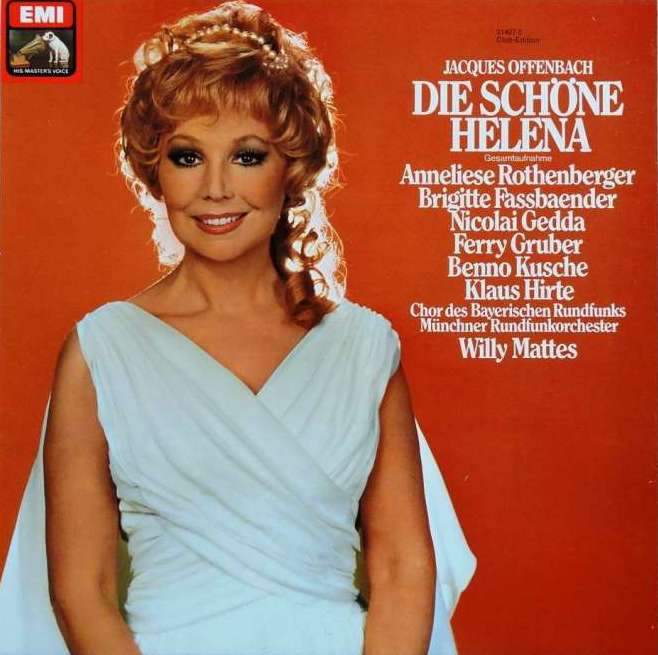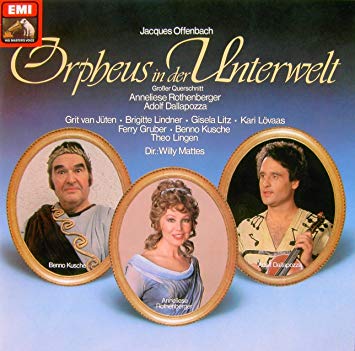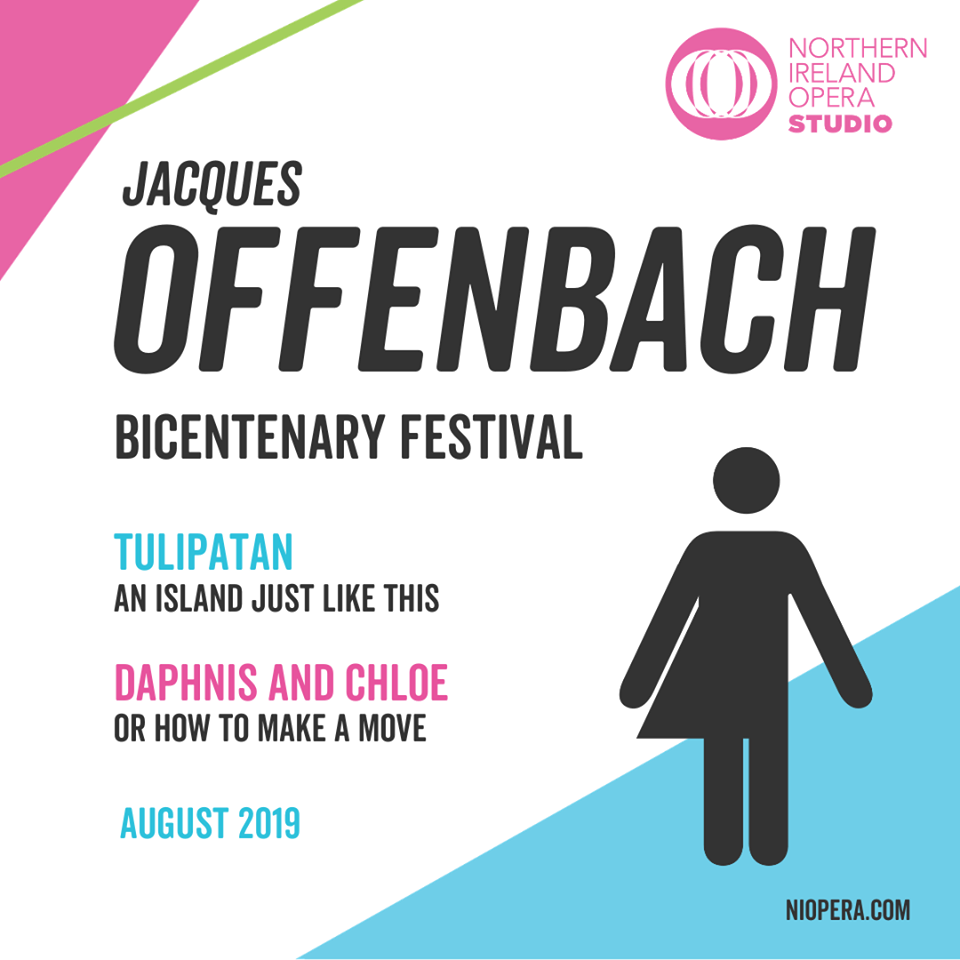Kevin Clarke
Operetta Research Center
1 August, 2019
How do you solve a problem like – operetta? The question has been asked many times over, especially since so many musicologists and theater historians have not been very good at dealing with the genre and its particularities, weighing operetta down with ideology that can often seem totally out of date, suiting their own personal world view of respectability or revolution. A new book by Kaspar Maase points the way to an informed alternative, its title: Populärkulturforschung – Eine Einführung.

Kaspar Maase’s “Populärkultur: Eine Einführung.” (Photo: transcript Verlag, 2019)
The 290 page book is an introduction into the “research of popular culture” (“Populärkultur”) and maps the various approaches that have established themselves in recent decades. The book comes across as deeply academic, but in a good way, because Mr. Maase gives a great overview of shifting approaches and of various critiques of “pop culture”: why did Adorno and others push it aside, why is mass culture not fully accepted by many as a field of research? And what does that do with these fields (not) being researched, and with the researchers? What about the economic importance of mass culture? What about the obvious relevance it has for many people and their lives? And how can these people talk about something that is relevant for them, without being immediately ostracized by academia?
While Mr. Maase does not talk about operetta, his observations easily apply to operetta. And that’s what makes it so fascinating to read his outline of an ‘ideal’ way of dealing with mass and/or pop culture, of which operetta was once an important part.
Mr. Maase ticks off all the boxes that inform today’s discourse. And he is clear and easily understandable in his language, which is a blessing in the context of German academic writing.
Of the many things he writes, there was one aspect that particularly struck me, because so much operetta writing is deeply touched by it. Kaspar Maase reminds researchers to self-reflect on what motivates them to tackle certain topics and explore particular areas.
Doing this – in an operetta context – would help understand why Volker Klotz is pushing operetta into a social democratic corner, why East Germany saw Offenbach as a forerunner of the communist world revolution, why the Nazis applauded films such as Willi Forst’s Operette from 1940, or why post-WW2 operetta performance traditions are so “backwards” in their morals as opposed to the famous Weimar way (not to mention Paris in the 1860s). Why are people drawn to this or that form of operetta, and why do they wish to research one or the other aspect of operetta’s varied history?
There is no right and wrong here, but adding the personal background to the research helps make things more understandable for outsiders. So I tried applying this Maase recommendation to myself to understand why the sexual politics of operetta attract me so much – and why I have wanted to learn more about them from the start.

The cover for the EMI recording of “Die schöne Helena” with Anneliese Rothenberger in the title role. (Photo: EMI/Warner Classics)
When I was 14 years old I accidentally discovered Die schöne Helena at my local Berlin library, because I found the bright orange LP cover showing Anneliese Rothenberger in a Greek tunique and with a massive Greek hair-do striking. It appealed to my sense of the weird, especially since I knew Miss Rothenberger from her TV programs. Which made it all seem even weirder. While the recording is as un-sexy and un-queer as can be, if you don’t count the “hyper camp” dialogue scenes of Gerd W. Dieberitz as Philokomus, the text in the German translation by Ernst Dohm and the music spoke to me as a young LGBTIQ person, still in the closet. This idea that Helena was suffering from the “hand of destiny” weighing upon her, the idea that she had to pretend to be a respectable wife while secretly longing for the Apple Man to come and claim her, the way she defends herself in the most ludicrous way once she’s caught in bed with her lover, blaming her husband for coming home unannounced, before singinga grand aria about being accused wrongly, when she knows full well that the accusations are entirely accurate … all of this knocked me sideways. Not even a classically sung recording like this could stop me from understanding intuitively that something more was going on, even if I could not put my finger on the why and wherefore back then.
I started reading every Offenbach book I could find at the library, searching for clues. But the only interesting information I could obtain was that Offenbach liked to dress in flamboyantly bright colors. I also read that he forbade Hortense Schneider to ever take singing lessons. I wondered why on earth all the Offenbach recordings I could find were with opera singers who had clearly taken singing lessons.

The EMI recording of Offenbach’s “Orpheus in der Unterwelt” with Anneliese Rothenberger.
I went on exploring and fell just as madly for Orpheus in der Unterwelt, also in a Rothenberger recording. Again, the absurd play with morals and society, but also with secret sexual lust first hidden in a corn field, then in an underworld boudoir, where unspeakable things happen with a fly, fascinated me. But because I could not find the direct connecting link to my own LGBTIQ experience I moved on and busied myself with Broadway musicals instead. In that field, I could find hundreds of books about why gay men love this type of entertainment and what its relevance for the Gay Liberation Movement is. After coming out to my parents and the world at large, I forgot about Offenbach, instead applying the things I had learned about LGBTIQ musicals to jazz operettas of Weimar Republic Berlin, e.g. Erik Charell and his productions at the Großes Schauspielhaus, culminating in Im Weißen Rössl in 1930. I wrote books about this, curated an exhibition at Schwules Museum, became a board member of that museum, curated an exhibition on the history of pornography, wrote a book about pornography. And I learned that examining porn is not so much about the sex act itself, but far more interesting is the question how society accepts (or doesn’t accept) depictions of sex, non-heteronormative sex especially. As JC Adams from the Gay Porn Times said in an interview for my book: “Porn is an interesting reflection of what goes on in our culture.”

The cover for volume 1 of Kurt Gänzl’s “Emily Soldene: In Search of a Singer” (2007).
And then, suddenly, the loose Offenbach ends buried deep in my memory connected when I received a copy of Kurt Gänzl’s two volume Emily Soldene: In Search of a Singer in 2007. To put it mildly, a whole new world opened before my eyes, a world that was even more fascinating than the most liberated stuff I had read about LGBTIQ musicals of the 1960s and 70s, or about Erik Charell. Differently put, I was suddenly able to trace many of these later “liberation” elements back to the 1860s and 70s.

The cover of “Offenbach und die Schauplätze seines Musiktheaters.”
I was hooked. And when I belatedly discovered Offenbach und die Schauplätze seines Musiktheaters I was hooked even more. These books pointed me towards so much source material that I was flabbergasted that this material, though easily accessible, was adamantly ignored by Offenbach researchers and excluded from any profound genre discussion. Even in Rainer Franke’s 1999 book you get all the quotes about indecency and moral outrage, about the scandalous new elements in Offenbach and the shock waves they created, yet that’s never part of a discussion of what “operetta” actually means as a singular form of commercial musical theater. The authors of the various essays were still, and often are so today, busy elevating operetta to higher regions of whatever, possibly afraid to besmirch themselves and their academic careers with the in-your-face sexual side of operetta.

“Jacues Offenbach and the Making of Modern Culture” (2018) by Laurence Senelick, together with the ground breaking “Offenbach und die Schauplätze seines Musiktheaters” (1999).
Things have changed, since. And many recent authors have discussed the in-your-face sexual side of operetta, Laurence Senelick is one of them in his new Offenbach book. But also Matthias Kauffmann in his Operette im ‘Dritten Reich’ deals with this aspect. A revival of Offenbach’s gender-bending Island of Tulipatan – in places such as New York City and Belfast – show that there is a new generation picking long forgotten shows they can relate to.

Poster for Opera Northern Irelands “Offenbach Bicentenary Festival,” 2019.
That’s not to say that any of this has a claim to exclusiveness. Kasper Maase reminds readers that there is a plurality of perspectives, and we should accept such a plurality, even celebrate it. In operetta research, a multitude of perspectives is only tentatively emerging; for the longest time renowned researchers have claimed that their way of looking at the genre was the one-and-only way. Well, Mr. Maase says: it isn’t.
It’s why I found this book so wonderful. I wish that anyone delving into operetta research today would read it first and include the many mapped out approaches in their future work. Because, as Maase writes in his introduction: “Diversity of questions and multiplicity of approaches are positive aspect of any empirical cultural research.” We need to find a convincing way of dealing with mass culture that has been labeled “dirty,” “trivial,” “sentimental,” “kitsch,” or “unworthy.” Kasper Maase demonstrates how that might be done.
